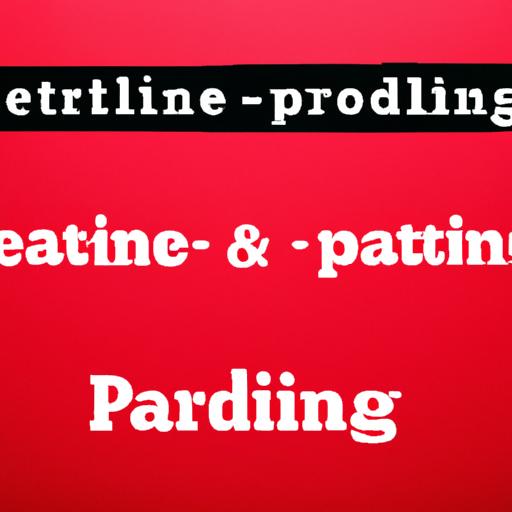The Impact of Parenting Styles on Children Developmental Outcome

Introduction

Parenting plays a crucial role in shaping a child’s future. As parents, we have the power to influence our children’s development in profound ways. The way we parent, our parenting style, has a direct impact on their overall well-being and success in life. But what exactly are parenting styles, and why are they so important?
Parenting styles refer to the strategies and approaches that parents use to raise their children. These styles are influenced by various factors, including cultural norms, personal beliefs, and individual experiences. Understanding the different types of parenting styles and their effects on children is essential for creating a nurturing environment that fosters optimal growth.
Thesis Statement: In this article, we will delve into the impact of parenting styles on children’s developmental outcomes. By exploring the various parenting styles and their effects, we can gain valuable insights into how our choices as parents shape our children’s lives.
Parenting styles not only affect children’s immediate behavior but also have long-term consequences on their cognitive, emotional, and social development. By understanding the significance of different parenting styles, we can make informed decisions to provide our children with the best possible environment for growth and success.
Now, let’s embark on this journey together as we explore the world of parenting styles and their profound impact on our children’s developmental outcomes.
Authoritative Parenting Style
A. Definition and Characteristics of Authoritative Parenting
Authoritative parenting is characterized by a balanced approach that combines high levels of responsiveness and demandingness. Parents who adopt this style set clear expectations and boundaries while also being warm, supportive, and responsive to their child’s needs. They provide guidance and structure but also encourage independence and self-expression.
B. Positive Effects on Children’s Developmental Outcomes
Authoritative parenting has been consistently associated with positive developmental outcomes in children. Research shows that children raised by authoritative parents tend to have higher self-esteem, better social skills, and greater academic achievements. They develop a sense of autonomy and competence, as well as strong problem-solving and decision-making abilities.
C. Examples and Research Studies Supporting the Positive Impact
For example, a study published in the Journal of Adolescence found that adolescents with authoritative parents were more likely to have higher levels of emotional well-being, lower levels of depression, and engage in fewer risky behaviors compared to those with other parenting styles. Another study published in Developmental Psychology revealed that children of authoritative parents had higher academic performance and were more socially competent.
D. Potential Limitations or Challenges
While authoritative parenting has numerous benefits, it is not without its challenges. Some potential limitations include the need for parents to find a balance between setting rules and being flexible, as well as the potential for conflicts to arise when children challenge the boundaries set by their parents. It’s important for parents to continuously adapt their parenting style to meet their child’s changing needs and personality.
By adopting an authoritative parenting style, parents can create a nurturing and supportive environment that promotes their child’s overall development. The next section will delve into another parenting style, the authoritarian style, and its impact on children’s developmental outcomes.
Authoritarian Parenting Style
A. Definition and Characteristics of Authoritarian Parenting
Authoritarian parenting is characterized by strict rules, high expectations, and a lack of flexibility. Parents who adopt this style tend to have a strong desire for control and obedience from their children. They often use discipline methods that are punitive and harsh, rather than nurturing and understanding.
B. Negative Effects on Children’s Developmental Outcomes
The authoritarian parenting style can have detrimental effects on children’s developmental outcomes. Due to the strict and controlling nature of this parenting style, children may develop low self-esteem, lack of autonomy, and poor decision-making skills. They may struggle with expressing their emotions, as they fear the consequences of doing so.
C. Examples and Research Studies Supporting the Negative Impact
Research studies have consistently shown the negative impact of authoritarian parenting on children’s development. For example, a study conducted by Baumrind (1966) found that children raised in authoritarian households tend to have lower academic achievement and poorer social skills compared to children raised in other parenting styles.
Additionally, examples of the negative impact can be observed in the child’s behavior and emotional well-being. Children raised in authoritarian households may exhibit higher levels of anxiety, depression, and aggression. They may also have difficulty forming secure attachments and maintaining healthy relationships later in life.
D. Potential Limitations or Challenges
While authoritarian parenting may seem like an effective way to instill discipline and obedience, it is important to consider the potential limitations or challenges associated with this style. Some limitations include the potential for increased conflict between parent and child, decreased communication and trust, and hindered development of critical thinking and problem-solving skills.
It is crucial for parents to understand the negative consequences of authoritarian parenting and strive to adopt more balanced and nurturing approaches that promote healthy development and well-being in their children.
Permissive Parenting Style
A. Definition and Characteristics of Permissive Parenting
Permissive parenting is characterized by a relaxed and indulgent approach to parenting, where parents are highly nurturing and lenient with their children. These parents tend to avoid setting clear boundaries and rules, opting instead for a more permissive and laissez-faire parenting style. They often prioritize their child’s happiness and desires over discipline and structure.
B. Negative Effects on Children’s Developmental Outcomes
While permissive parenting may seem like a loving and accepting approach, it can have detrimental effects on children’s developmental outcomes. Without clear boundaries and structure, children may struggle with self-regulation, have difficulty following rules, and exhibit impulsive behaviors. They may also struggle with decision-making and lack a sense of responsibility.
C. Examples and Research Studies Supporting the Negative Impact
Numerous research studies have highlighted the negative impact of permissive parenting on children’s development. For instance, a study published in the Journal of Child and Family Studies found that children raised with permissive parenting styles were more likely to engage in risky behaviors, such as substance abuse and delinquency. Another study conducted by researchers at the University of California found that children raised in permissive households had lower academic achievement compared to their peers.
D. Potential Limitations or Challenges
While permissive parenting may have some drawbacks, it is important to acknowledge the potential limitations and challenges faced by parents who adopt this style. Factors such as cultural influences, parental stress, and lack of knowledge about effective parenting strategies can contribute to the adoption of permissive parenting. It is crucial to provide support and resources to parents to help them navigate the challenges and make informed choices that benefit their children’s well-being.
By understanding the negative effects of permissive parenting, parents can strive for a balanced approach that combines warmth, nurturing, and clear expectations. Implementing consistent boundaries and age-appropriate rules can help children develop self-discipline, responsibility, and resilience. Remember, parenting is a journey of learning and growth, and it is never too late to make positive changes that will benefit your child’s developmental outcomes.
Uninvolved Parenting Style
A. Definition and Characteristics of Uninvolved Parenting
Uninvolved parenting, also known as neglectful parenting, is characterized by a lack of emotional involvement and minimal responsiveness from parents towards their children’s needs. Parents who exhibit this style often prioritize their own needs or are simply disengaged from their children’s lives. They may neglect to provide emotional support, guidance, or supervision, leading to a lack of structure and consistency in the child’s upbringing.
B. Negative Effects on Children’s Developmental Outcomes
The impact of uninvolved parenting on children’s developmental outcomes can be detrimental. Without consistent emotional support and guidance, children may struggle with various aspects of their lives. They may experience difficulties in forming healthy relationships, have low self-esteem, and struggle with emotional regulation. Additionally, they may exhibit behavioral problems, such as aggression or delinquency, due to the lack of parental supervision and guidance.
C. Examples and Research Studies Supporting the Negative Impact
Research studies have consistently shown the negative effects of uninvolved parenting on children’s developmental outcomes. For example, a study published in the Journal of Family Issues found that children of uninvolved parents were more likely to have lower academic achievement, higher rates of substance abuse, and increased mental health issues compared to those with involved parents.
D. Potential Limitations or Challenges
Uninvolved parenting may stem from various factors, including parental stress, mental health issues, or a lack of knowledge and resources. It is important to note that some parents may unintentionally exhibit uninvolved parenting behaviors due to challenging circumstances. However, recognizing the negative impact and seeking support or resources can help mitigate the adverse effects on children’s development.
By understanding the characteristics and consequences of uninvolved parenting, we can take steps to ensure that we are actively involved in our children’s lives. Providing emotional support, guidance, and being present in their lives can help promote their overall well-being and positive developmental outcomes.
Conclusion
Parenting styles have a significant impact on children’s developmental outcomes. The way we choose to parent our children can shape their behavior, emotions, and overall well-being. Throughout this article, we have explored the different parenting styles and their effects on children’s development.
It is clear that authoritative parenting, characterized by warmth, support, and reasonable expectations, is associated with positive developmental outcomes. Children raised by authoritative parents tend to have higher self-esteem, better social skills, and a greater sense of autonomy. On the other hand, authoritarian, permissive, and uninvolved parenting styles have been shown to have negative effects on children’s development.
As parents, it is crucial to recognize the impact our parenting style has on our children. By being aware of the different parenting styles and their consequences, we can make intentional choices to create a nurturing and supportive environment for our children to thrive.
To positively influence our children’s developmental outcomes, it is important to be responsive, set appropriate boundaries, and provide love and support. By being involved in their lives, actively listening to their needs, and fostering open communication, we can help them develop essential life skills and resilience.
In conclusion, the impact of parenting styles on children’s developmental outcomes cannot be underestimated. By adopting an authoritative parenting approach and creating a loving and supportive environment, we can set our children up for success in all aspects of their lives.
Remember, as parents, we have the power to shape the future of our children. Let’s embrace this responsibility and provide them with the guidance and support they need to reach their full potential.
tintucvn365.com





